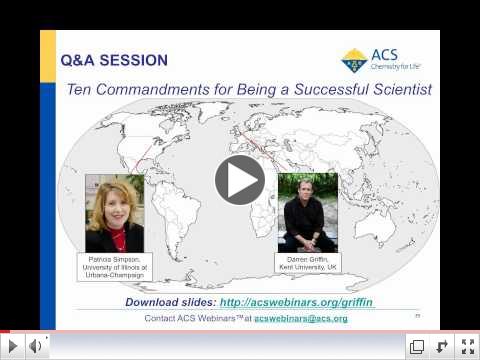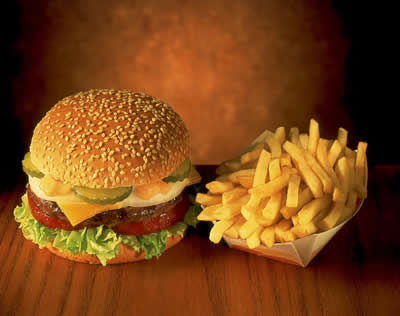|
|
  The Distillate The Distillate
|
|

Which (advanced) chemistry course you disliked most in college? Share your thoughts and see how your peers responded by clicking on the question above. |
|
|
|
|
THE BUSINESS CORNER
Boom, Gloom and the New Normal
By Paul Hodges, International eChem
 Financial markets are again becoming more volatile, threatening the value of our pensions and investments. Commodity markets are soaring, pushing up the cost of living. Financial markets are again becoming more volatile, threatening the value of our pensions and investments. Commodity markets are soaring, pushing up the cost of living.
What is the underlying cause of these dramatic developments? How can you better understand what is happening, and help to ensure that you, your family and your company prosper as a result of the changes now underway?
These are the key questions that I address in my new eBook, jointly authored with ICIS's Asian expert John Richardson. It is based on new research, highlighting how the number of babies soared by 33 million between 1946-70 in the G7 Group of the world's wealthiest nations (USA, Germany, Japan, UK, France, Italy, Canada).
These babies led to a Golden Age of consumption for the chemical industry as they reached the 25 - 54 age group. This is when people typically marry, settled down and have children. Demand took off for all types of products, old and new, as these wealthy Westerners bought houses, autos, electronic equipment and other major items.
By 1995, all these babies had moved into in the 25 - 54 bracket. Demand was so strong, a whole new production system had to be developed. It was called 'outsourcing'. This has since become an accepted part of our lives, but the word itself only came into existence around 1993.
Before then, companies had usually kept production close to their main markets. But business models changed, as oil prices stayed in the $10-20/bbl range and trade barriers came down. It became easy to move product to market from virtually anywhere in the world.
Today, however, this paradigm is changing once again. The oldest BabyBoomers are now 65, and soon the majority will be in the 55+ age group. This is when people typically save more and spend less. And they will have to save more, as their life expectancy has improved by a decade.
One key issue is that the next generation is very much smaller, 38 million smaller. And although the emerging economies of Asia and Latin America have seen high growth in recent years, this has been based on an export development model. Around 37% of China's economy is export driven, for example, based on producing goods for the West.
So companies now need to focus on new market opportunities. A middle class income in India or China is typically $1k - $5k, compared to the $25k - $100k in the USA. So their demand patterns will be very different. The demand patterns of the BabyBoomers themselves are also changing, as they move beyond their peak consumption years.
The new book aims to offer insights and ideas on what this New Normal will mean for the chemical industry. Each chapter is being published via free download, on a month by month basis. Given the importance of the subject, Distillate will feature a short summary of each chapter each month.
Please go to www.icis.com/NewNormalEbook if you would like to download Chapter 1.
This business insight is brought to you by Paul Hodges, Chairman of International eChem and renowned ICIS Chemicals and the Economy blogger. To read more about the New Normal, visit Paul's blog on Chemicals and the Economy. Watch upcoming ACS Webinars with Paul on the 2011 Chemicals and the Economy Mid Year Review.
Email us chemical business topics would like us to cover in future issues.
Back to Top Page |
|
THE WRITING CORNER - MANUSCRIPT AND GRANTS
Give Your Manuscript a Makeover
By Kristin Sainani, PhD., Stanford University.
 Scientific writing conveys complex ideas, but this doesn't mean that the language has to be complicated and unreadable. Here are three tips to make your manuscript more lively, engaging, and informative: Scientific writing conveys complex ideas, but this doesn't mean that the language has to be complicated and unreadable. Here are three tips to make your manuscript more lively, engaging, and informative:
1. Get rid of unnecessary clutter.
Instead of: Anti-inflammatory drugs may be protective for the occurrence of Alzheimer's Disease.
Try: Anti-inflammatory drugs may protect against Alzheimer's Disease.
Instead of: Ultimately p53 guards not only against malignant transformation but also plays a role in developmental processes as diverse as aging, differentiation, and fertility.
Try: Besides preventing cancer, p53 also plays a role in aging, differentiation, and fertility.
Instead of: An IQ test measures an individual's abilities to perform functions that usually fall in the domains of verbal communication, reasoning, and performance on tasks that represent motor and spatial capabilities.
Use: An IQ test measures an individual's verbal, reasoning, and motor and spatial abilities.
Instead of: Clinical seizures have been estimated to occur in 0.5% to 2.3% of the neonatal population (1,2).
Try: Clinical seizures occur in 0.5% to 2.3% of the neonatal population (1,2).
2. Use the active voice.
Instead of: Increased promoter occupancy and transcriptional activation of p21 and other target genes were observed.
Try: We observed increased promoter occupancy and transcriptional activation of p21 and other target genes.
Instead of: General dysfunction of the immune system has been suggested at the leukocyte level in both animal and human studies.
Try: Human and animal studies suggest general dysfunction of the immune system at the leukocyte level.
3. Write with verbs instead of nouns
Instead of: The activation of Ca++ channels is induced by the depletion of endoplasmic reticulum Ca++ stores.
Try: Depleting Ca++ from the endoplasmic reticulum activates Ca++ channels.
Instead of: During DNA damage, recognition of protein X by protein Y results in recruitment of Protein Z and repression of cell proliferation genes.
Try: During DNA damage, protein Y recruits proteins X and Z, which together repress proliferation genes.
 Kristin Sainani is a clinical assistant professor at Stanford, where she teaches statistics and manuscript writing. She is also a freelance health and science writer. Kristin Sainani is a clinical assistant professor at Stanford, where she teaches statistics and manuscript writing. She is also a freelance health and science writer.
Want more tips? View Kristin's recorded presentation.
Email us your writing questions or tips you would like us to cover in future issues.
Back to Top Page
|
|
CONSULTING TIP OF THE MONTH
Strategic Alliance Agreements for Consultants
By Dr. John Newport, Chemical Consultants Network
 Have you considered strategic alliances to boost your business? A strategic alliance can be defined as an agreement between two or more individuals or entities stating that the involved parties will act in a certain way in order to achieve a common goal. Strategic alliances usually make sense when the parties involved have complementary strengths and are every bit as useful for individual consultants as they are for large corporations. Have you considered strategic alliances to boost your business? A strategic alliance can be defined as an agreement between two or more individuals or entities stating that the involved parties will act in a certain way in order to achieve a common goal. Strategic alliances usually make sense when the parties involved have complementary strengths and are every bit as useful for individual consultants as they are for large corporations.
For our purposes we can identify several types of alliances. These are:
- Alliances put together by individuals
- Ad hoc alliances facilitated by a third party
- Ad hoc alliances put together by a third party.
An example of an alliance put together by a third party is ideaconnection.com who assembles teams, by invitation, to work on defined problems. These are short term partnerships and, once completed, the teams are disbanded. Other examples such as Teamingusa.com facilitates individuals and companies finding each other and collaborating, often in a subcontractor role. Open innovation companies like Innocentive.com also provide the means for Solvers to team up with each other.
Traditional alliances can also make sense for consultants. Myself and three other partners, who all maintain their individual business, set up ChemInnolab to take advantage of our diverse skills.
As in any partnership having an agreement in place is a must. Points to consider include the nature of the business, how decisions are to be made, selection of projects, intellectual property, sources and distribution of revenues, exit strategy for a partner and whether or not to transfer voting rights to an inheritor, how the partnership can be dissolved and a list of assets and equipment.
Learn more details about strategic alliances here.
Dr. John Newport provides consulting Chemventive LLC and R&D services through ChemINNOLAB LLC in which he is a partner. Previous to this he was a Senior Research Fellow at Hercules Incorporated where, in his 34 year career there, he worked on the R&D side of the fibers, film, RIM, resins and paper businesses. His areas of expertise cover polymer chemistry, surface chemistry, rheology and transport phenomena.
Have a comment? Go to Chemical Consultants Network LinkedIn page.
This monthly tip is brought to you in collaboration with the Chemical Consultants Network. Next month's Consulting Tip will discuss the team approach to consulting.
Email us your consulting questions or tips you would like us to cover in future issues.
Back to Top Page
|
| Upcoming ACS Webinars - June Lineup |
ACS Webinars™ CLICK * WATCH * LEARN * DISCUSSLearn more and register at www.acswebinars.orgBringing You Four Delectable Channels in June 2011.
- Your Career GPS
- June 9, 2011 - Wow Your Crowd: Presenting Online with Power.
- Business and Innovation
- June 16, 2011 - Protecting Your Idea & Safeguarding Your Business Structure.
- Joy of Science
- June 30, 2011 - Advanced Culinary Chemistry - Sizzles for the Summer.
ACS Webinars™ connects you with subject matter experts and global thought leaders in chemical sciences, management, and business on relevant professional issues. More information and registration...Have ideas? Email us your suggestions for future ACS Webinars topics. Please include 'Webinar Topic Suggestion' in the subject line. Back to Top Page
|
Featured Archived Content:Ten Commandments for Being a Successful Scientist - with Prof. Darren Griffin, University of Kent, UK. - The only way to do good research is to get on with it
- When opportunity knocks, open the door
- With good people you can do anything
- It's not about your knowledge. It's about imagination and ideas
- Always bring something to the party
- It's not the size of your gun, it's when you shoot
- If the system doesn't work for you, change it, do something else or don't complain
- Don't ask why - Ask why not
- The journey Is usually far more rewarding than the destination
- Be nice to people
 | | Ten Commandments for Being a Successful Scientist |
Back to Top Page
|
 2012 National Chemical Technician Award 2012 National Chemical Technician Award
Nominations for the 2012 National Chemical Technician Award (NCTA) is now open. Nominees must be currently employed as a chemical technician, and must have worked as a chemical technician for a minimum of five years. Nominees do not need to be an ACS member. The award will consist of a trip for the winner and a guest to the Spring ACS National Meeting; March 25-29, 2012, San Diego, CA. Additionally, the awardee will receive a $1000.00 honorarium at dinner held in their honor in San Diego.Nomination packets must be received by the Committee on Technician Affairs (CTA), no later than September 30, 2011.
Visit www.acs.org/ncta for nomination criteria, complete details and to download the nomination or re-nomination form. Send questions to cta@acs.org.
Back to Top Page
|
Upcoming meetings that may be of interest to you:
- June 2, 2011 - Biotech Outlook 2020, Luncheon or Webcast, Chemical Marketing & Economics Group - ACS NY Section.
- July 18-20, 2011 - Organic Microelectronics & Optoelectronics Workshop VII, San Francisco, CA.
- June 19-22, 2011 - 85th ACS Colloid and Surfaces Symposium, Montreal, Quebec, Canada.
- Jun 21-23, 2011 - 15th Annual Green Chemistry & Engineering Conference + 5th International Conference on Green and Sustainable Chemistry, Washington, DC.
Back to Top Page |

Calling all Entrepreneurs!
From Invention to Venture (I2V): The Key Challenges Chemists Face in Entrepreneurship. June 28th, 2011. Fee $10
The American Chemical Society's Division of Business Development & Management (BMGT), the Women Chemists Committee (WCC) and the National Collegiate Inventors and Innovators Alliance (NCIIA) invite you to attend an afternoon workshop focused on the key challenges facing chemists as they start up new ventures or license or otherwise transfer technology. Sessions will include panel discussions and feature the opportunity for entrepreneurs to "speed pitch" to VIPs and speakers.
Register at: http://www.norm2011.org/workshops.html
|
Want your events included in The Distillate and/or ACS Webinars webpage? Please email us your events info with the subject title EVENTS.
|
International Year of Chemistry 2011 Spotlight
|
|
 Pennies for PUR™ Water Pennies for PUR™ Water
Every day, several billion people around the world live without clean water. ACS will raise funds to purchase water purification packets that can be used in areas of the world that do not have readily available clean and potable water.
Learn how you can help...
Back to Top Page
|
 Cheesy Chemistry and Entrepreneurs - And Why We Love Them. Cheesy Chemistry and Entrepreneurs - And Why We Love Them.
Wonder how chemists have seized opportunities? In April, The Distillate brought you the story of a chemist turned soda-entrepreneur. In May, we featured a chemist turned bagel-entrepreneur. This month, we feature an analytical chemist turned cheese-entrepreneur. Meet Bill Courtney, a chemist turn chef and opened a restaurant that specializes all things cheese in Missouri. And who says chemists are boring science geeks?
|
 Why Used Cooking Oil is Better in Browning French Fries? Why Used Cooking Oil is Better in Browning French Fries?
Calling all chemists to rise to the challenge. Cooking is basically chemistry experiments in the kitchen. From why vigorous boiling produces green eggs to how copper pots can help fluff your egg whites. However, the chemistry of why used cooking oil is better for browning french fries is still unresolved. If you know the answer, please write to us and we will publish it in the next issue of The Distillate.
Read the Obscure Kitchen Chemistry post...
Back to Top Page
|
 Win an ACS 'International Year of Chemistry 2011' lapel pin. Win an ACS 'International Year of Chemistry 2011' lapel pin.
"Scientists are explorers. Philosophers are tourists." by ??? (Don't let the summer tourist season fool you)
Send us your correct answer to win the lapel pin. Three winners will be selected for this popular pin. This month's quote was submitted by Nicholas Schlotter from Minnesota.
Email us (distillate@acs.org) your answer by June 17, 2011 to be entered into the drawing. Please use QUOTE for the subject line. The answer to the quote and the winners will be posted in next month's edition.
Congratulations to Jennifer Randall of West Virginia, Steve Jefferey of California, and Zuzana Baranova of Texas as May winners. Winners were randomly selected from all the correct entries received. Thank you to all who entered the contest.
Have a quote to share? Send us (distillate@acs.org) your favorite scientists' quotes and if we use your submission, we will send you a surprise prize.
Back to Top Page
|
Reach >100,000 scientific professionals. If you would like to submit an article, news, or upcoming events for next month's
newsletter, email us by 5:00 pm Eastern Time on the third Friday
of the month to imp@acs.org. Inclusion is subject to space and
editorial discretion.
|
|
|
|
|
Back to Top Page
About this e-mail: You are receiving this newsletter because you are an ACS member. ACS Industry Member Programs respects your privacy and will not sell, lease, or share your e-mail address with any other organization. ACS Industry Member Programs will only use e-mail for the purpose of conducting ACS business. To update your email or to unsubscribe, please click on the links below. The views expressed in the Distillate are those of the authors and do not necessarily reflect the views or policies of the ACS.
|
|
|
|
|
|